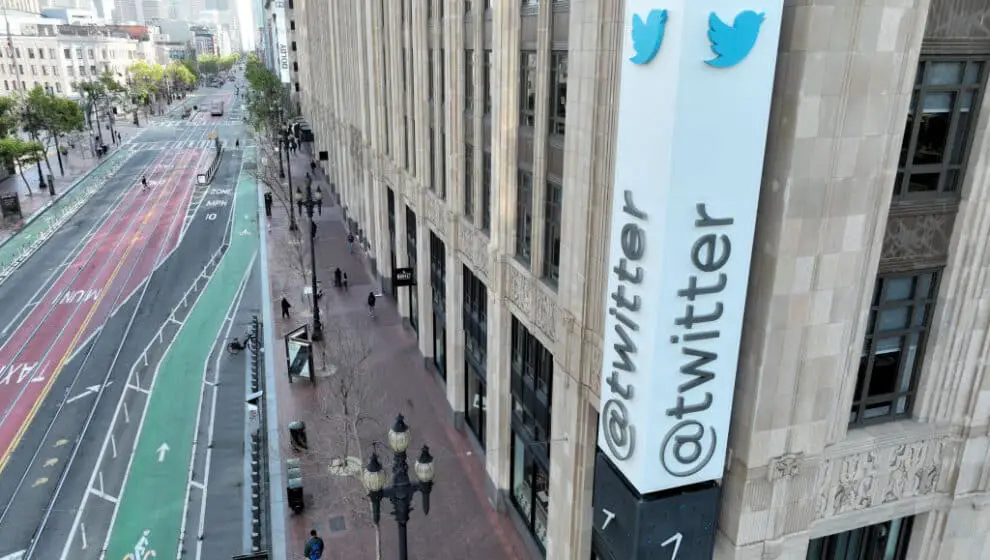Elon Musk denies that he is firing Twitter employees to skip big profit-sharing payouts.
Key Details
- There have been published reports that Twitter owner Musk is laying off workers before November 1 in an attempt to avoid a big profit-sharing payout.
- Musk has severed some employees from the company—but he has denied the claims that the reasoning was to avoid big payouts and instead he fired them for cause.
- The New York Times reported shortly after the deal closed that Musk ordered job cuts across the company, with some teams to receive bigger cuts and that layoffs would take place before tomorrow.
- Musk replied “This is false” to a tweet that shared these details of The New York Times article.
Why it’s news
Elon Musk has been making news headlines for months as he has been attempting to buy Twitter.
Now, the Tesla CEO is the official owner of the social media company after completing the $44 billion deal this past week. In the wake of closing the deal, Elon Musk has been laying off certain employees from the company.
The New York Times reported shortly after the deal closed that Musk ordered job cuts across the company, with some teams to receive bigger cuts and that layoffs would take place before November 1. The report said the reasoning for the deadline was because that date is when employees were scheduled to receive stock grants as part of their compensation.
A twitter user asked Musk about the layoffs on the platform and he responded, “this is false.”
After the Twitter deal was finalized Musk fired Twitter CEO Parag Agrawal, CFO Ned Segal, and legal affairs and policy chief Vijaya Gadde, but his reasoning wasn’t to avoid payouts it was because they misled him and Twitter investors over the number of spam bots and fake accounts on the platform.
These firings were done as an alleged “change of control” and not to avoid payouts, although it is possible the executives could still receive payment unless Musk can prove he fired them for cause.
Backing up a Bit
The full timeline between Elon Musk and Twitter is long.
It all started in April, Elon Musk announced that he held a 9.2% stake in Twitter, which made him the social-media company’s largest shareholder. Twitter’s stock price soared 25% after the announcement.
Later that month, the billionaire entrepreneur offered to buy all of Twitter at $54.20 per share—equaling about $44 billion. He said he originally invested in the platform because he believes it is failing in its potential to be the leading platform for free speech around the globe. In fact, he asked his 2 million followers if Twitter adhered to principles of free speech, and 70% said “no.”
In July, Musk decided to back out of the deal, claiming there were too many fake accounts on the platform. Twitter has since sued Musk in Delaware Court of Chancery to complete the deal and requested the trial to take place in September. Musk, on the other hand, wanted to delay the trial until February 2023, stating that a case of this size takes time to prepare. Twitter was granted its wish of an expedited trial, with Chancellor Kathaleen McCormick, the presiding judge, setting a five-day trial for October.
Musk then countersued Twitter, stating his reason for the termination was due to Twitter not being upfront about the number of fake accounts on the platform.
Then, Elon Musk and his legal team subpoenaed Twitter’s founder and former CEO Jack Dorsey, to get him to release documents that provide accurate information on bots and spam accounts on the social-media platform and now these documents have come out from Zatko and Musk and his lawyers have subpoenaed him as well.
Then, Musk’s text messages were revealed in court filings and it showed that Twitter co-founder Jack Dorsey tried to facilitate Musk’s Twitter takeover, which led to Musk officially reverting back to his original deal to buy the social-media company.
Chancellor Kathaleen St. Jude McCormick set a trial date and ordered the case would proceed if Musk did not close the deal by October 28, which led to Musk officially accepting the deal.
